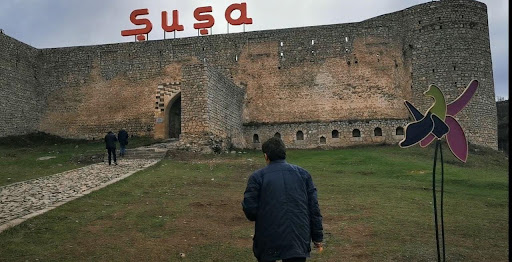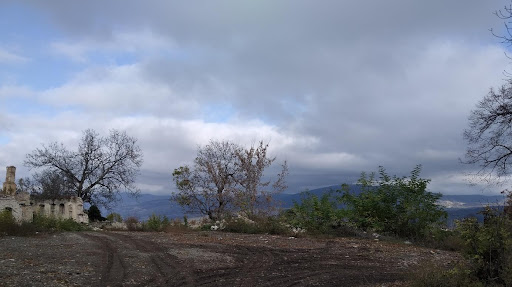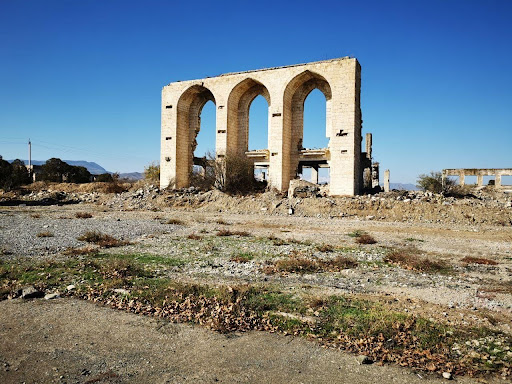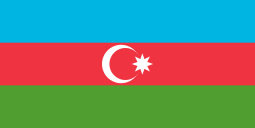
Journalist ethics and hypocrisy
On the repercussions of the visit of Swedish journalists to Azerbaijan
09 November 2021
It was the middle of October 2020. The Azerbaijani army was making history in Karabakh. As a journalist and a citizen, I have been writing from my social media profiles about my 30-year longing, every day sharing posts in Swedish and Azerbaijani about the liberation of the cities and villages. We have also tuned our weekly program, which has been running on the Swedish Open Public Channel (Öppna Kanalen) since January 2019, to the full mood of war news. News from Baku and the Press Klub are recorded in English. Part of the videos are sent from there, and the rest we shoot in Sweden. Then we add films and show an hour-long program on the Öppna channel. Recently, our work has been facilitated by English-language interviews given by President Ilham Aliyev to more than 30 media outlets around the world. They also became part of our program. What could be more interesting than hearing the course of the war and the position of Azerbaijan in the language of the first person of the country? The President's full answers to the sometimes sharp, open questions of foreign journalists attracted the attention of many.
On that eve, I received letters from both social networks and the e-post with the following content: “Rahim, as a journalist in Sweden, you are registered at the Foreign Ministry and the Parliament. The statuses and TV shows you share raise doubts about your impartiality. The Azerbaijani army, which you praise so much, is blowing up churches and bombing maternity hospitals in Nagorno-Karabakh...” and so on. In fact, the writers were not Armenians, but Swedes and Europeans.
The war ended in victory. My next goal was to take Swedish journalists to Azerbaijan and show them the reality.
After the visit from Baku to Agdam, Arif Aliyev, the head of the Press Klub, wrote an article entitled "Installation of Hell." I wanted to translate it into English, and made a documentary about Aghdam, the city, which is also called "City of Spirits," "Hiroshima of the Caucasus." I used to work for the Swedish SVT-UR channels and had friends. Contacting them, I intended to organize a visit for a group of 4 journalists to Azerbaijan. Of course, I could not do it alone. There was a need for some financial support, as well as meetings with various government agencies and journalists' organizations, to resolve various issues related to the visit to Karabakh. I contacted the Press Klub about this. When I knew I would get support, I returned to Swedish journalists. I sent them the film "Installation of Hell" about Aghdam and answered their questions. I said that the main purpose of the visit was to go to Karabakh. I was the first to meet the photographer, Michael Silkeberg, who wanted to take part in the trip. I have seen Michael's exhibitions many times, both in Stockholm and in other cities. He said he also planned to organize a Karabakh exhibition. Journalists Maria Bertell, Agneta Nordin, and Deniz Merdol also expressed interest in the region.
I would like to thank the Press Klub, the Union of Journalists of Azerbaijan and the State Committee for Work with the Diaspora for their assistance in the implementation of our project and the organization of meetings. Special thanks go to the Extraordinary and Plenipotentiary Representation of Azerbaijan in Sweden, Norway and the Republic of Finland for obtaining visas and prompt resolution of a number of administrative issues related to the visit.
The journalists met in Baku at the State Committee for Refugees and Internally Displaced Persons, the Ministry of Foreign Affairs, ANAMA, ITV and the Center for Multiculturalism. We also introduced them to the Nobel Brothers Museum at Villa Patrolea. Journalist Maria Bertell asked to meet with refugees and IDPs. We went to Gobu village. The Swedes who listened to people's life stories were impressed. The refugees said they were waiting for the day when they would be able to move to their liberated homes and would like to see Swedish journalists in their homes again.
Of course, the culmination of our trip was the visit to Karabakh. When you enter a liberated area, you immediately feel the difference. When our bus passed by the "Military Trophy Park” in Baku, my colleagues asked: "Why is this equipment here?" They now saw burned out military vehicles on the side of the road. We visited the modern Fizuli airport, which was built for 7 months in the ruins, then crossed the "Victory Road" and reached the entrance to Shusha...

Azerbaijani soldiers are checking our documents, and I am showing the Swedish journalists the Lachin corridor and the area where the "peacekeepers" are located. Michael takes pictures. We answer the questions of Maria, Agneta, and Deniz. We want to go for a walk in the city of Shusha, drinking tea on foot at the hotel "Khari Bulbul." The hotel is full, Sheikh-ul-Islam Haji Allahshukur Pashazade and the head of Turkish Solidarity Affairs are here with a large staff, accompanying them. We are meeting with a special envoy appointed to Shusha by the President. We meet Aydin Karimov, whom I have known since childhood, 30 years later in Shusha.
Having settled in the hostel, we go out into the city. Zaur Hasanov, an employee of the Shusha State Reserve, and Leyla Gasimova, a representative of the Committee for Work with the Diaspora, provide detailed information about the places we visit. The shot statues of Uzeyir Hajibeyov, Khangizi Natavan, and Bulbul, destroyed buildings, historical monuments, Bulbul's house museum, Govhar Aga mosque... Some mosques were used as pig stables... Finally, the Jidir Plain. Khankendi, where Armenians live, is visible from here.
In the evening, we meet Allahshukur Pashazade and Turkish clerics in the dining room. We have a sincere conversation. His Highness Sheikh shakes hands with everyone. The Swedes learn who he is and become surprised. Anyway, maybe I just feel it...
It's morning. We are preparing to descend from the foggy mountains. The clouds are below Shusha. We are joined by a soldier in civilian clothes and a police sergeant. They go home. On the way, the Swedes interrogate the serviceman. He participated in the battle for Shusha and was seriously wounded. He is still receiving treatment. "Where is he from?" they ask. He says he is from Western Azerbaijan located on the territory of present-day Armenia. I explain that hundreds of thousands of refugees came to Azerbaijan from Armenia during the conflict. The car stops on the road. The soldier and the police say goodbye. Our way is to Aghdam.
We are going from Guzanli to Agdam, "Installation of Hell", "City of Spirits", "Hiroshima of the Caucasus". A young specialist, Faig, who works here, gives journalists detailed information about the situation in the city and its near future. Destroyed monuments, roads, theater, tea house, mansion, mosques, lined with ruined houses, ruins "painted" by an "artist". "Where was the market, I wonder?" I ask. The famous Aghdam market. I also tell the Swedes about the market. Once again, I involuntarily shed a tear. The Swedes don't seem to understand my feelings.

On the bus, I tell everyone: "If you go, ask the Armenians in Yerevan or ask them in Sweden: "How did you destroy these houses so "neatly"? Michael asks: "They don't look like they were destroyed by bombs and weapons, don't they?" That's right. "They destroyed it with their hands, - I add, - dug graves and threw the bones out."
We are going to Barda. Today is the anniversary of the rocket attack in Barda. AzTV's camera is here. The Swedes refused to give an interview. We are meeting with the families of martyrs in Barda.
Our visit is coming to an end. We return to Baku and give a PCR test. İn the early morning I will send the Swedes to Stockholm.
Now some people in Sweden criticize me for being a "part of Azerbaijan's propaganda machine" and taking Swedish journalists to Azerbaijan. Yes, I am Azerbaijani. An Azerbaijani living in Sweden. Of course, I want the world to know about the disasters caused to my country by the Armenian side. No lies, and no exaggeration! Is there a better way to do this than to show everything as it is?
I suggest my Swedish friends to ask their Armenian or pro-Armenian acquaintances and colleagues who criticize them: "How and for what reason could such a paradise – Karabakh – be turned into hell? Does something here violate journalistic ethics?
Author: Rahim Sadıqbeyli Stokholm-Baku












